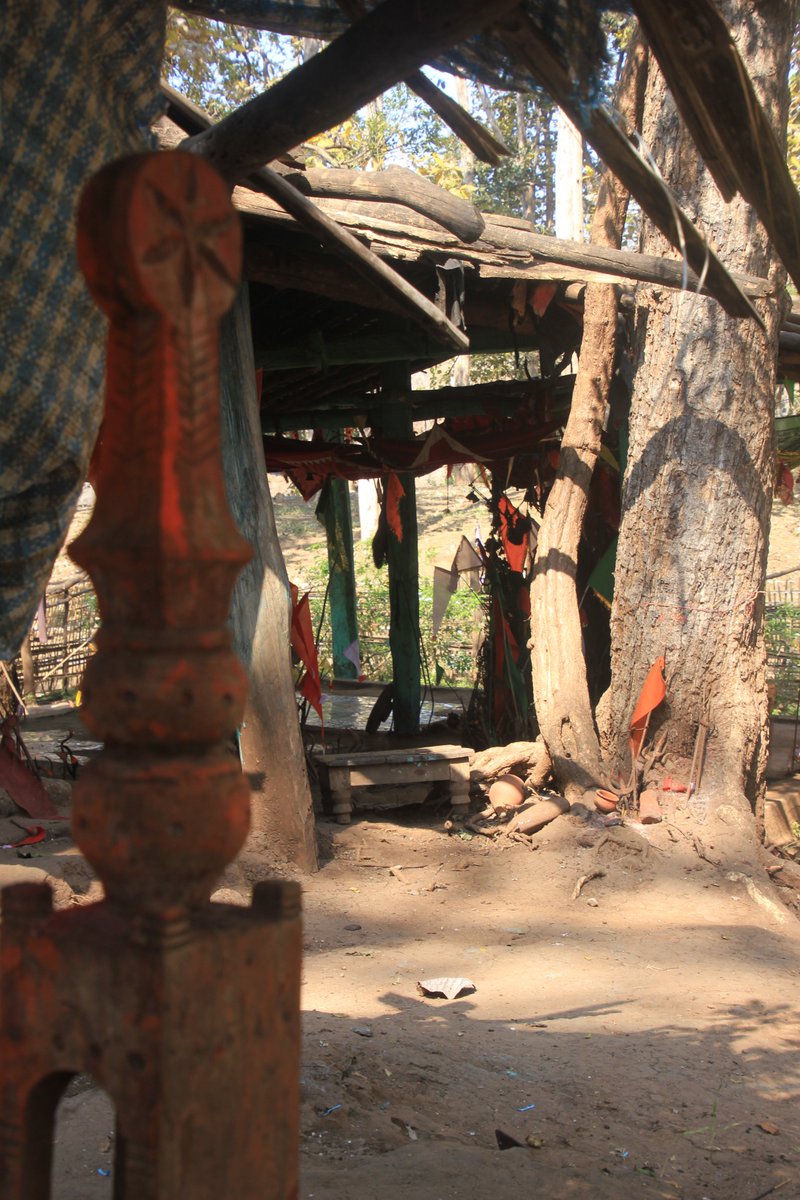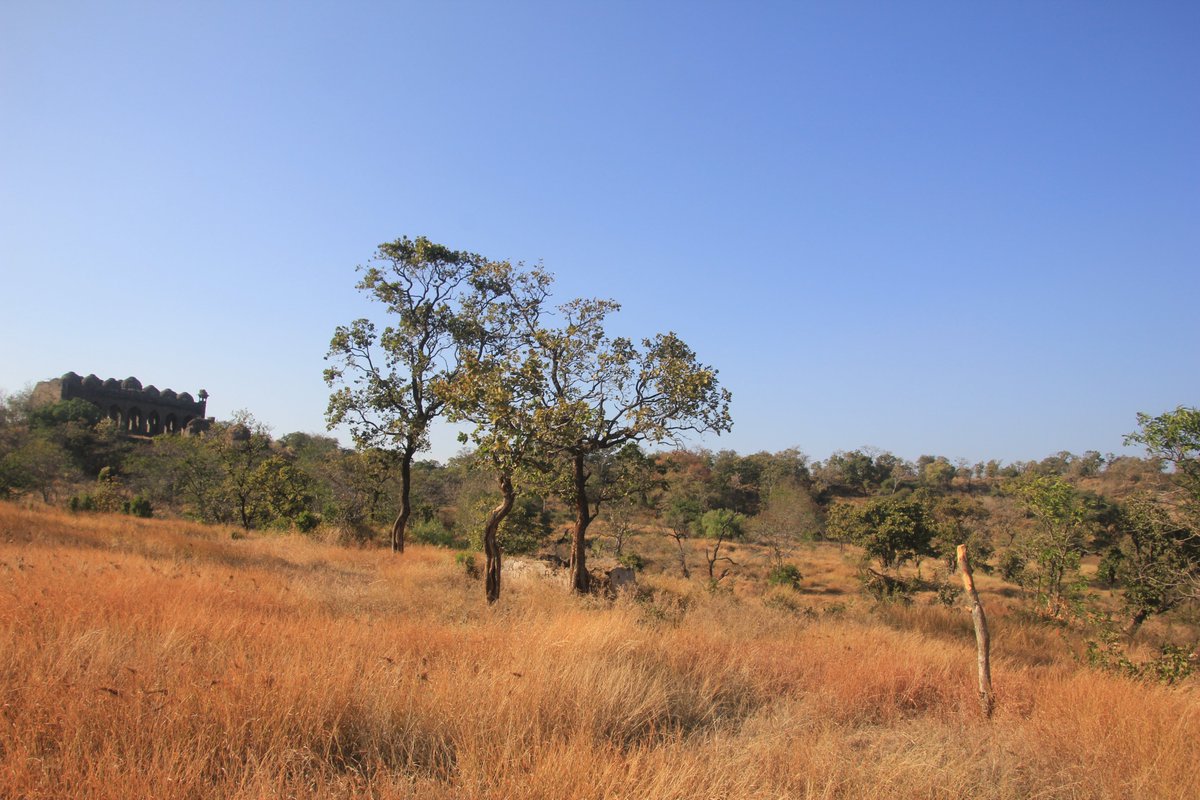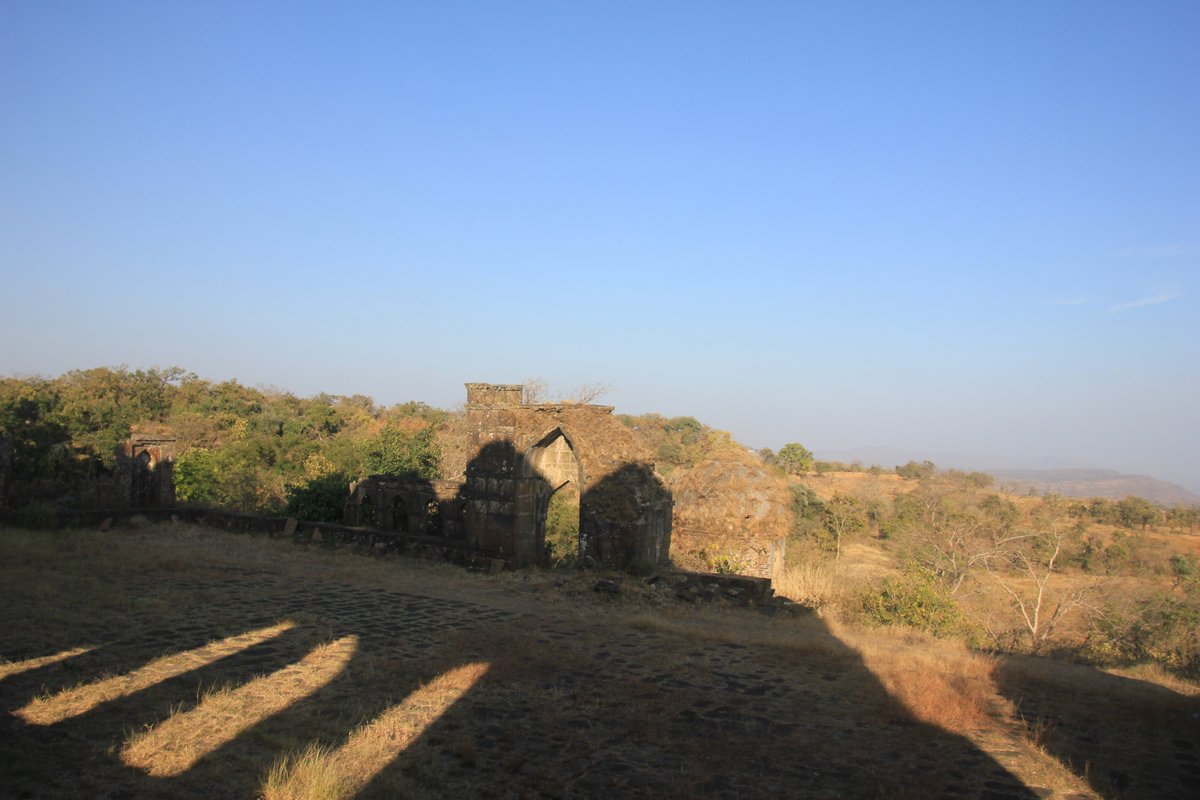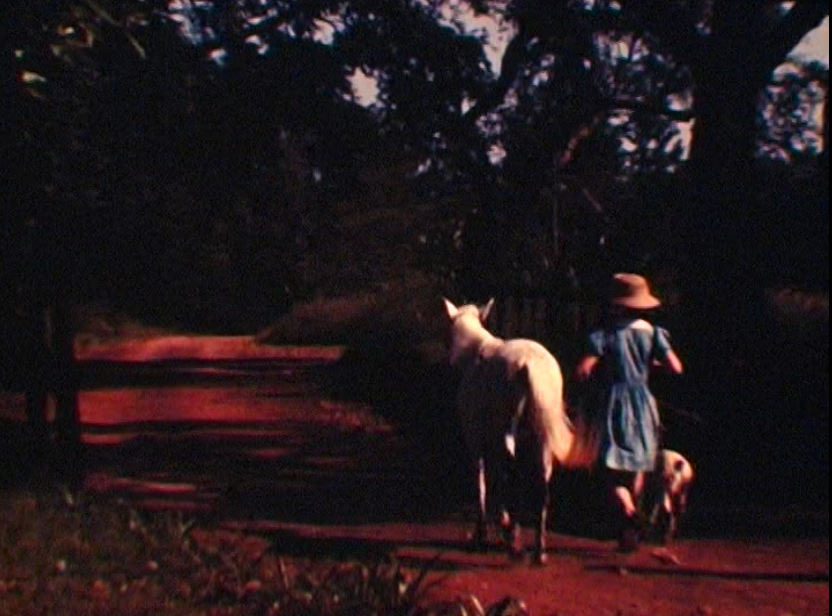Today is the 98th birthday of Jagat Jyoti Dutta, perhaps the oldest IFS officer alive & among the finest wildlife managers India has ever produced. Born in 1926, he is a living witness to the changing history of forest & wildlife management. As one +
(Video by @nishant2108 )
(Video by @nishant2108 )
of the longest serving Chief Wildlife Wardens of Madhya Pradesh (retired 1984), he was instrumental in turning MP into the 'tiger state' that it has become today.
I traveled to Bhopal +
(The 1948 Batch of Indian Forest College, Dutta sahab stands 5th from left, Second Last Row)
I traveled to Bhopal +
(The 1948 Batch of Indian Forest College, Dutta sahab stands 5th from left, Second Last Row)

in April last year especially to meet and spend some time with him. The next three evenings with him were among the most memorable of my life, a living bridge into a world, a time, & a forest department long gone by. Time flew by as he narrated his many incredible tales ranging + 

from his probationary period that involved camping for weeks in the forests of Yavatmal & Melghat in what was then Central Provinces & Berar, to his hair-raising experiences with a notorious man-eating tiger in Achanakmar (now in Chhattisgarh) whom he would eventually shoot. Few+
know that he was instrumental in turning Bandhavgarh into the tiger haven that it has become today. He narrated how when he first took Bandhavgarh under his wings, the forest was practially dead having become a famed cattle grazing ground with thousands of heads +
(In Kanha)
(In Kanha)
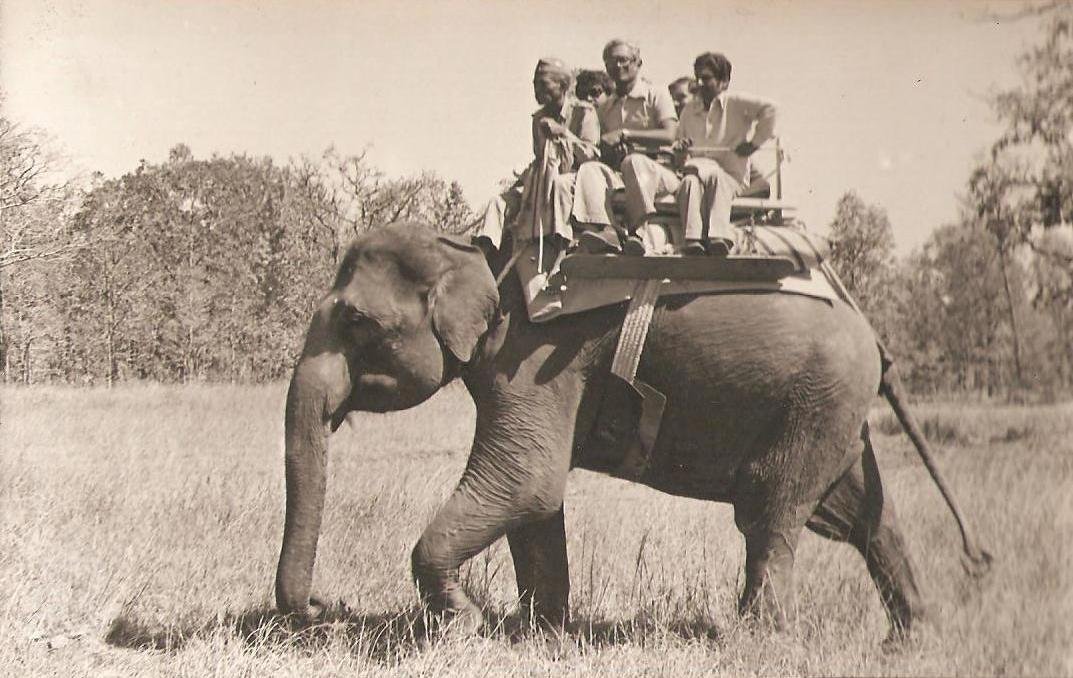
swarming the forest, most of which came over from neighboring states. He reminisced how it took his team more than 7 years to restore the park, how for more than 3 years he could hardly see any wild ungulate in this forest, & how it took nearly 10 years +
(With Salim Ali, 1978)
(With Salim Ali, 1978)
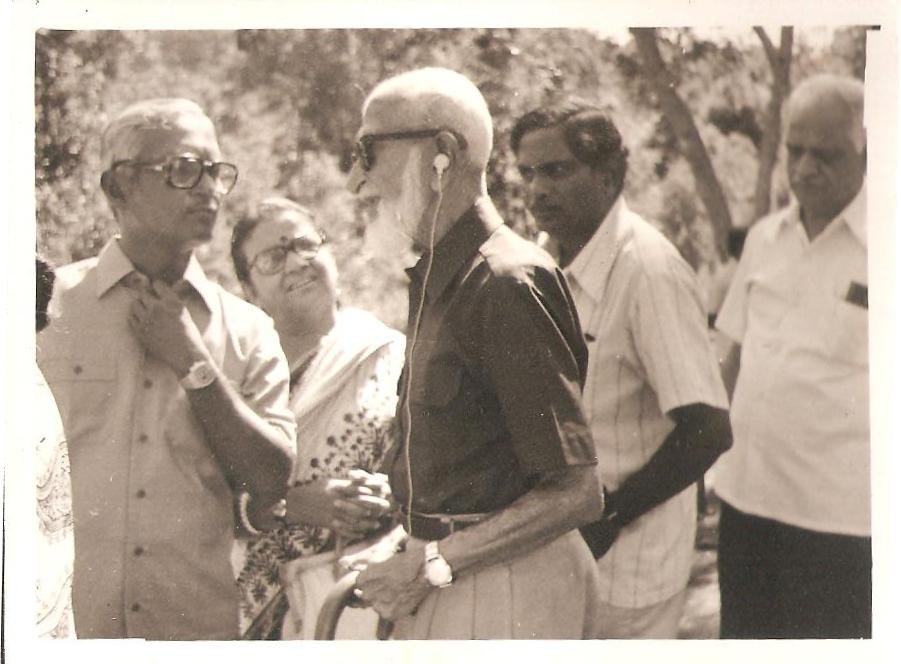
to see his first tiger here!
It would take many a page to pen down all his stories, & though he steadfastly refused to pen down his memoirs, he occasionally wrote short essays. One of his rare essays written in 2014 , titled "Life of a Junglee", is a delightful read. A few +
It would take many a page to pen down all his stories, & though he steadfastly refused to pen down his memoirs, he occasionally wrote short essays. One of his rare essays written in 2014 , titled "Life of a Junglee", is a delightful read. A few +
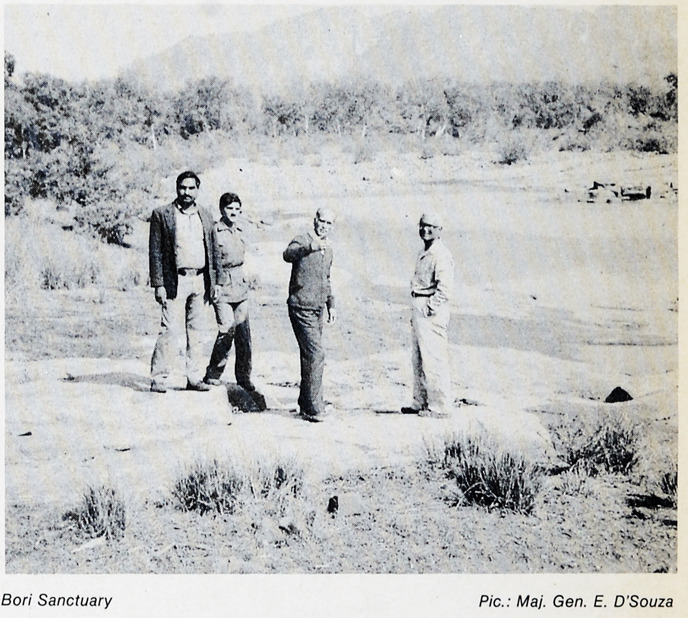
excerpts :
"My first posting (April 1950) was in Yeotmal....I spent continuous 2½ months in tents, camping inside the coupes which were Teak forests with no water or leaf shade. But the local staff managed to keep me supplied with water from a village 6 kms away. My DFO felt +
"My first posting (April 1950) was in Yeotmal....I spent continuous 2½ months in tents, camping inside the coupes which were Teak forests with no water or leaf shade. But the local staff managed to keep me supplied with water from a village 6 kms away. My DFO felt +
very happy about ‘this new ACF’ who preferred tent life to FRH’s......I was thus transferred to Surguja Division. This to everyone else seemed like a punishment posting, but I took it as part of my service. Young and energetic, lately married and just one baby still in arms, I +
reached Ambikapur, on 1.1.1956, to a newly built DFO’s bungalow, and a very welcoming group of District Officers. Surguja was a truly wild place, and like all wild places, supremely secure! There were no pilferings, no thefts. The only crimes were +
(As DFO Surguja in 1957)
(As DFO Surguja in 1957)

murders, and in all cases the murderer just came to the PS and declared that he had murdered someone for very good reason. None of them was ever sent to the gallows. They served their terms in jail like the best of people, happy and hardworking, and the jail garden supplied us +
the freshest and choicest of vegetables at a nominal monthly payment. Otherwise Surguja had no vegetables! Only lately something used to come from Raigarh 200 kms away by road....The Maharaja Surguja, Maharaj Ramanuj Saran Singh Deo is well known to the world as the person who +
shot a record 1300 tigers in his lifetime, all in his own state (barring a few on a trip once to Nepal). Many people now look down on this as a monstrous deed leading to decimation of tigers, but I would very much differ. The fact is that Surguja of those days had no difficulty +
in supplying about 50 tigers per year. The forests, and the few cattle that the villagers possessed, provided rich and abundant prey for a large population of tigers and on my tours as DFO, then WPO and again DFO totaling nearly seven years I saw why Surguja was so hospitable to+
tigers. The forests were lovely Sal and mixed type and water was every where, to the extent that road making was a major problem due to innumerable water crossings. There was just one all weather road from Raigarh to Manendragarh through Ambikapur. All other roads were then +
either non-existent, or just Kutcha road tracks, jeepable in fair weather."
He also wrote a fascinating note on the ills of mindless silviculture & afforestation.
"After an year as Attached officer, [in 1951] I was sent for ‘Range training’ to ‘Bhavargarh’ Range in Betul +
He also wrote a fascinating note on the ills of mindless silviculture & afforestation.
"After an year as Attached officer, [in 1951] I was sent for ‘Range training’ to ‘Bhavargarh’ Range in Betul +
division [Madhya Pradesh] , a teak and ‘mixed’ forest area...We walked to the FRH from Shahpur, my hqs. to Kantawadi 14 kms. away, the luggage going on bullock carts. The officers refused to travel by cart and the 14 km. walk was easily done...The plan was made. Teak was to be +
encouraged for better ‘revenue’ production and non-teak areas were proposed to be planted....Today Betul forests are almost ‘pure’ Teak. Mixed forests have virtually disappeared. The areas where sambhur, cheetal, bison, tiger & leopard roamed around have become wildlife deserts.+
Betul, where the bungalows never needed ceiling fans even, now needed to be air conditioned. Betul, a favorite Division for British IFS officers, now is a poor division due to these environmental changes that I have seen and experienced in my lifetime. The current trend towards +
‘environmental forestry’ does not help."
Dutta sahab was the first IFS officer to be sent by GoI to Canada to undertake a specialized training in Wildlife Management in 1966.
Incidentally, during my visit to Gomarda, a +
(Canadian Arctic, with a tranquilised polar bear)
Dutta sahab was the first IFS officer to be sent by GoI to Canada to undertake a specialized training in Wildlife Management in 1966.
Incidentally, during my visit to Gomarda, a +
(Canadian Arctic, with a tranquilised polar bear)
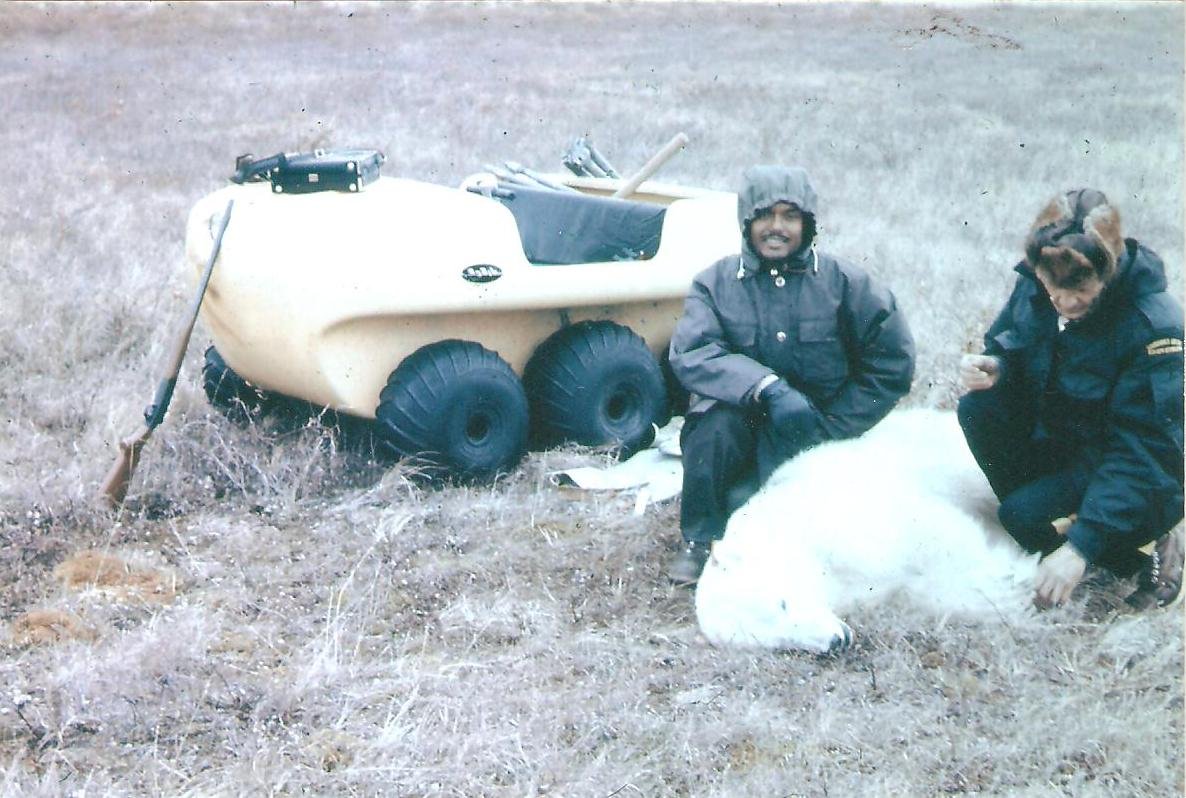
little-known wildlife sanctuary in eastern Chhattisgarh, in 2022, I was pleasantly surprised to find that there exists a forest rest house named after Dutta sahab. 'J.J. Dutta Bangla' was named so in remembrance of the critical role he played in the creation of this sanctuary. + 
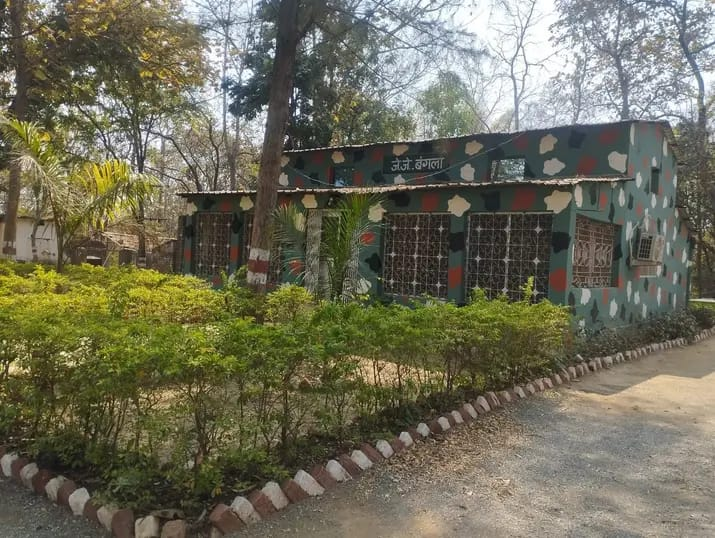
He would go on to become the CWLW of MP in 1977 and hold the position for 7 long years.
Over the last few years he was conferred multiple awards including a Lifetime Service Awards by the Govt. of Madhya Pradesh in 2023.
There is so so much more to talk about this wonderful +
Over the last few years he was conferred multiple awards including a Lifetime Service Awards by the Govt. of Madhya Pradesh in 2023.
There is so so much more to talk about this wonderful +

unassuming man but for now I just pray that he continues to bless us with his presence and wisdom in the years to come.
~fin~
~fin~
@threadreaderapp unroll
• • •
Missing some Tweet in this thread? You can try to
force a refresh







